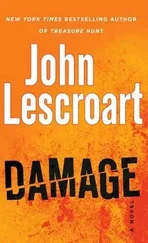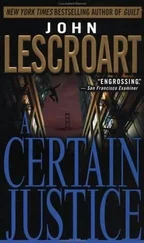John Lescroart - Son of Holmes
Здесь есть возможность читать онлайн «John Lescroart - Son of Holmes» весь текст электронной книги совершенно бесплатно (целиком полную версию без сокращений). В некоторых случаях можно слушать аудио, скачать через торрент в формате fb2 и присутствует краткое содержание. Год выпуска: 2003, ISBN: 2003, Издательство: New American Library, Жанр: Старинная литература, на русском языке. Описание произведения, (предисловие) а так же отзывы посетителей доступны на портале библиотеки ЛибКат.
- Название:Son of Holmes
- Автор:
- Издательство:New American Library
- Жанр:
- Год:2003
- ISBN:9780451208750
- Рейтинг книги:4 / 5. Голосов: 1
-
Избранное:Добавить в избранное
- Отзывы:
-
Ваша оценка:
- 80
- 1
- 2
- 3
- 4
- 5
Son of Holmes: краткое содержание, описание и аннотация
Предлагаем к чтению аннотацию, описание, краткое содержание или предисловие (зависит от того, что написал сам автор книги «Son of Holmes»). Если вы не нашли необходимую информацию о книге — напишите в комментариях, мы постараемся отыскать её.
Son of Holmes — читать онлайн бесплатно полную книгу (весь текст) целиком
Ниже представлен текст книги, разбитый по страницам. Система сохранения места последней прочитанной страницы, позволяет с удобством читать онлайн бесплатно книгу «Son of Holmes», без необходимости каждый раз заново искать на чём Вы остановились. Поставьте закладку, и сможете в любой момент перейти на страницу, на которой закончили чтение.
Интервал:
Закладка:
She was not a native of Valence, or even of this region, and even after so many years, her accent betrayed a certain foreignness which I found becoming. When Chessal had returned to Valence with his new bride, there had been rumors of royal ancestry, of some distinctly romantic past. I had no trouble accepting her with this touch of mystery. When we first met, I had been fascinated, but now her antecedents meant no more to me than her accent.
The others had gone on for a time with Paul and finally persuaded him to begin reading a new poem. He wanted more beer, but I’d given Fritz a sign to hold off until everyone had arrived.
After token comments relating to the paucity of his host’s refreshments, Paul went to the center of the room and began. He read in English, which only two or three of us understood, and it was quite modern, but he read well—the cadences were rhythmic and pleasing. This was, after all, his only live audience of any size.
When he’d finished, I told him I found the thing incomprehensible, but he didn’t seem to mind. He just shrugged and grinned and said something about comic relief, though while he was reading, he did not seem to take it lightly. Suddenly, he turned and cried out:
“I must, must, simply must have more beer!”
Henri, who had sat looking utterly perplexed while Paul read, concurred with a shy belch.
Georges stood and raised his empty glass. “I’d propose a toast to the poet if there were something to drink.”
Tania turned to me. “Why are you holding the beer, Jules? Is there some surprise for us?”
The damned woman knew me too well.
“What makes you think I’m holding back the beer?” I asked.
Paul spoke. “You’ll never understand women, Jules. Our most secret thoughts are the common currency of their lives. Maybe they don’t read the thought but they sense the secret; and although maybe they know less, they understand more.”
“Bah!” Georges interjected. “I may be only a simple observer, but I know when a gaffe has been committed. For a man to pretend to understand women is bad manners.”
“And for him to really understand them is bad morals,” Tania added.
“All right. Assez, assez. I’ve been holding back the beer. I admit it. I’m guilty, but there’s a reason.”
“One would hope so,” said Tania.
“Such a serious matter,” added Georges.
“It’s not such a great matter,” I said, smiling. “We’re going to have another guest.” I looked around for reactions, but there was nothing special. Henri looked a bit put out for a moment, but I had expected that. As one who cherished his nonintellectuality and tried as much as possible to keep the conversation off-color, he was not disposed to welcome a new guest who might tip the balance of the evening away from purely sensual enjoyment.
“Who is this person, Jules?” Georges asked. “We know almost everyone in Valence. Is he a neighbor?”
“Jules hasn’t said our guest is a he, Georges. Perhaps he has invited another woman.” Marcel looked at Tania and winked.
“Enough.” It was time to end the mystery. “Our guest is Auguste Lupa. I met him quite casually the other day at La Couronne. He is a connoisseur of good beer, and a very pleasant fellow. Nothing more. He’s arrived here only recently, and I thought he would enjoy a taste—shall I say of society? I think he’ll fit in very nicely with our group.” The door sounded. “Ah, that would be him.”
Fritz brought Lupa into the room and announced him grandly.
The big man stood for a moment framed in the doorway, looking at the assemblage. There was a moment of silence, and then I jumped up and performed the introductions. Only Henri seemed ill at ease, while the others nodded cautiously and Fritz went to get another round of beers. Lupa sat by the door and, after another moment, spoke.
“Please disregard my attendance here for a time. Since you are obviously all attuned to one another, you’ll want to continue as before. Don’t make allowances for me. After a time the novelty will be gone, and I’ll join in as one of you, but for now, let me drink quietly and not disturb you.”
It was a strange prologue and served more to reinforce the silence than to dispel it.
“Nonsense,” said I. “Why don’t you tell the group about yourself? It isn’t every day we welcome a new member.”
“Member?”
“Well, not really a member of anything. Sometimes we do refer to ourselves as a group of sorts, but nothing so rigid as to demand membership.”
“Do tell us about yourself,” said Tania.
I saw Marcel smile at me. I didn’t expect Lupa to drop any information, but having him talk for a while wouldn’t hurt.
“Yeah, like where are you from?” That was Paul.
Lupa looked at him. “You’re American,” he said, then continued almost as though talking to himself. “Northwest, I should say. No, not so far west, perhaps Wyoming or Montana.”
“You got it, mister. Missoula, Montana, U. S. of A. How ’bout you?”
“Born.”
“Pardon?”
“Born in America, not bred. My mother traveled quite a lot with her career and fortuitously timed my birth so that I became an American citizen at the time of my first breath.”
“You don’t talk like an American,” said Henri, “more like a Greek, or . . .”
“Or a Serbian?” ventured Georges.
Lupa smiled. “Exactly. I’ve never lived in America, though I would like to go there. I was raised by several of my relatives—in England primarily but in other parts of Europe as well.”
I was surprised to find him so conversational. He sat straight in his chair, genial and relaxed. Henri and Marcel took out their pipes and lit them, Henri with a bit of ember from the fire.
Lupa raised his head slightly and sniffed at the air. “Ah, the smell of pipes. I love them. They bring back memory of my childhood, of my father. You, Monsieur Routier, you’re having a Cavendish latakia mixture, are you not? And Monsieur Pulis—a Virginia tobacco, perhaps even a chewing plug if I’m not mistaken?”
The two men looked at each other, impressed. “Exactly,” Marcel said.
“Not to chew, but to smoke,” Henri said, his face showing a certain sullenness.
I interjected. “You know your tobaccos, monsieur.”
He nodded. “It was a special interest of my father. Once we were together in Paris, and . . .”
“Oh, then you’re not new to France?” asked Tania, interrupting. “I’d somehow thought you were.”
“No, I spent most of my summers here as a youth.” He stopped and looked at Tania and me. “I should say when I was more of a youth.”
“What do you do in Valence?” Henri asked suddenly and, I thought, rather belligerently.
Lupa looked carefully at him. “You bear me animus, sir?”
I stepped in. “You’ll have to excuse Monsieur Pulis. He isn’t happy about having a new member, no matter who it might be. I’m sure it’s nothing personal. Isn’t that right, Henri?”
“If you’d prefer that I leave . . .”
“No, no, don’t be silly. It’s I who should leave,” said Henri. “I’m sorry. Sometimes I forget myself. I act like the ass.”
“Sometimes we all do,” Lupa replied with a pleasant smile. “Such is the effect that troubles sometimes have on us.”
Henri nodded, taking another huge drink from his bottle. Then, in a kind of double take, he put down his glass and stared at Lupa.
Georges, however, was the first to speak. “What do you know of Henri’s troubles?” The others all nodded in shared suspicion.
Lupa, aware of his faux pas, was nearly successful in smiling. Then he spoke in a self-deprecating tone. “You mustn’t mind me, please. Sometimes I get carried away by assumptions I can’t help making, and they lead me to conclusions that are often ridiculous. I saw Monsieur Pulis sitting slightly slumped over, and the thought entered my head that he seemed unnaturally subdued, given the spirit of the occasion. Additionally, I noticed that the second button on his shirt is missing and that he wears a wedding ring. He is, therefore, married, but on bad terms with his wife just now, or she wouldn’t have let him go out with his shirt un-mended. Finally, he appears to be drinking much more than the rest of us, often a sign of someone trying to forget a particularly depressing or difficult situation.”
Читать дальшеИнтервал:
Закладка:
Похожие книги на «Son of Holmes»
Представляем Вашему вниманию похожие книги на «Son of Holmes» списком для выбора. Мы отобрали схожую по названию и смыслу литературу в надежде предоставить читателям больше вариантов отыскать новые, интересные, ещё непрочитанные произведения.
Обсуждение, отзывы о книге «Son of Holmes» и просто собственные мнения читателей. Оставьте ваши комментарии, напишите, что Вы думаете о произведении, его смысле или главных героях. Укажите что конкретно понравилось, а что нет, и почему Вы так считаете.












